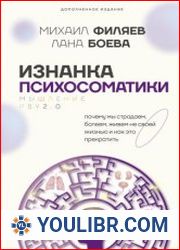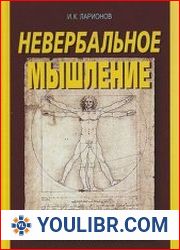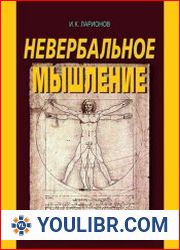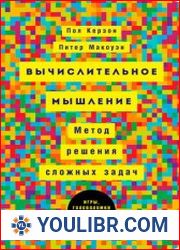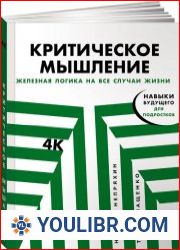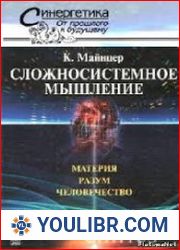
BOOKS - HUMANITIES - Юридическое мышление классическая и постклассическая парадигмы...

Юридическое мышление классическая и постклассическая парадигмы
In the new monograph, the authors analyze legal thinking from philosophical and theoretical legal positions, as well as in relation to the history of law, sectoral and special legal disciplines. The studies presented answer fundamentally important questions: how post-modern legal thinking differs from how lawyers and philosophers thought in the classical era; what happens to dogmatic thinking; why professional thinking is increasingly oriented towards the ordinary; where can the rejection of "high theory" lead in favor of "serving" practical jurisprudence.
يقدم كتاب «التفكير القانوني: النماذج الكلاسيكية وما بعد الكلاسيكية» تحليلا شاملا للتفكير القانوني من وجهتي النظر الفلسفية والنظرية، فضلا عن تطوره التاريخي في مختلف التخصصات القانونية. يتناول المؤلفون أسئلة أساسية حول كيفية اختلاف التفكير القانوني لما بعد الحداثة عن التفكير الكلاسيكي، ولماذا يتم استبدال التفكير العقائدي بمناهج أكثر براغماتية، وما يمكن أن يؤدي إليه هذا التحول نحو الفقه العملي. الكتاب مقسم إلى أربعة أجزاء. يستكشف الجزء الأول تطور التفكير القانوني، من النماذج الكلاسيكية إلى ما بعد الكلاسيكية، ويسلط الضوء على الاختلافات الرئيسية وأوجه التشابه بين النهجين. يتعمق الجزء الثاني في طبيعة التفكير القانوني، ويدرس دور المنطق والحجة والأدلة في اتخاذ القرارات القانونية. في الجزء الثالث، يناقش المؤلفون مشاكل التفكير القانوني ما بعد الحداثة، بما في ذلك رفض النظريات الفخمة واعتماد التطبيق العملي. وأخيرا، ينظر الجزء الرابع في مستقبل التفكير القانوني، مع مراعاة نتائج هذا التحول نحو البراغماتية في ميدان القانون والمجتمع ككل. يؤكد المؤلفون في جميع أنحاء الكتاب على الحاجة إلى دراسة وفهم عملية التطور التكنولوجي، حيث أن لها تأثيرًا عميقًا على تطور المعرفة الحديثة وبقاء البشرية. "gal Thinking: Classical and Postclassic Paradigms" 책은 철학적, 이론적 관점에서 다양한 법률 분야의 역사적 발전뿐만 아니라 법적 사고에 대한 포괄적 인 분석을 제공합니다. 저자는 포스트 모더니즘 법적 사고가 고전적 사고와 어떻게 다른지, 교리 적 사고가 더 실용적인 접근 방식으로 대체되는 이유, 그리고 이러한 실질적인 법학으로의 전환으로 이어질 수있는 것에 대한 근본적인 질문을 다룹 이 책은 네 부분으로 나뉩니다. 첫 번째 부분은 고전에서 고전 이후의 패러다임에 이르기까지 법적 사고의 진화를 탐구하여 두 접근 방식의 주요 차이점과 유사점을 강조합니다. 두 번째 부분은 법적 추론의 본질을 탐구하여 법적 결정을 내리는 데있어 논리, 논증 및 증거의 역할을 조사합니다. 세 번째 부분에서 저자는 웅장한 이론의 거부와 실용성의 채택을 포함하여 포스트 모더니즘 법적 사고의 문제에 대해 논의합니다. 마지막으로, 네 번째 부분은 법과 사회 전체에 대한 실용주의로의 전환의 결과를 고려하여 법적 사고의 미래를 고려합니다. 이 책 전체에서 저자들은 현대 지식의 발전과 인류의 생존에 중대한 영향을 미치기 때문에 기술 진화 과정을 연구하고 이해해야 할 필요성을 강조합니다. libro «Pensamiento jurídico: paradigmas clásicos y posclásicos» ofrece un análisis integral del pensamiento jurídico tanto desde el punto de vista filosófico como teórico, así como de su desarrollo histórico en las distintas disciplinas jurídicas. autores abordan cuestiones fundamentales sobre cómo el pensamiento jurídico posmoderno difiere del pensamiento clásico, por qué el pensamiento dogmático es reemplazado por enfoques más pragmáticos y a qué puede conducir este cambio hacia la jurisprudencia práctica. libro está dividido en cuatro partes. La primera parte explora la evolución del pensamiento jurídico, desde los paradigmas clásicos hasta los posclásicos, destacando las diferencias y similitudes clave entre estos dos enfoques. La segunda parte profundiza en la naturaleza del razonamiento legal, investigando el papel de la lógica, la argumentación y la evidencia en la toma de decisiones legales. En la tercera parte, los autores discuten los problemas del pensamiento jurídico posmoderno, incluyendo el rechazo de las grandes teorías y la aceptación de la practicidad. Por último, en la cuarta parte se examina el futuro del pensamiento jurídico, teniendo en cuenta las consecuencias de este cambio hacia el pragmatismo en el ámbito del derecho y de la sociedad en general. A lo largo del libro, los autores destacan la necesidad de estudiar y comprender el proceso de evolución tecnológica, ya que tiene un profundo impacto en el desarrollo del conocimiento moderno y en la supervivencia de la humanidad. Il libro «Pensiero giuridico: paradigmi classici e post-classici» offre un'analisi completa del pensiero giuridico sia dal punto di vista filosofico che teorico, nonché della sua evoluzione storica in diverse discipline giuridiche. Gli autori affrontano le questioni fondamentali su cosa il pensiero giuridico postmoderno è diverso dal pensiero classico, perché il pensiero dogmatico viene sostituito da approcci più pragmatici e cosa può portare a questo cambiamento verso la giurisprudenza pratica. Il libro è diviso in quattro parti. La prima parte esplora l'evoluzione del pensiero giuridico, dai paradigmi classici ai paradigmi post-classici, evidenziando le principali differenze e le somiglianze tra i due approcci. La seconda parte si approfondisce nella natura del ragionamento legale, esplorando il ruolo della logica, dell'argomentazione e delle prove nelle decisioni legali. Nella terza parte, gli autori discutono i problemi del pensiero giuridico postmoderno, tra cui l'abbandono di teorie enormi e l'adozione dell'attualità. Infine, la quarta parte affronta il futuro del pensiero giuridico, tenendo conto delle conseguenze di questo cambiamento verso il pragmatismo nel campo del diritto e della società in generale. Durante tutto il libro, gli autori sottolineano la necessità di studiare e comprendere il processo di evoluzione tecnologica, poiché ha un profondo impatto sullo sviluppo delle conoscenze moderne e sulla sopravvivenza dell'umanità. הספר ”חשיבה משפטית: פרדיגמות קלאסיות ופוסטקלסיות” מציע ניתוח מקיף של חשיבה משפטית מנקודות מבט פילוסופיות ותיאורטיות, כמו גם ההתפתחות ההיסטורית שלה בדיסציפלינות משפטיות שונות. המחברים עונים על שאלות בסיסיות בנוגע לחשיבה המשפטית הפוסטמודרנית השונה מחשיבה קלאסית, מדוע חשיבה דוגמטית מוחלפת בגישות פרגמטיות יותר, ולמה שינוי זה לקראת משפט מעשי יכול להוביל. הספר מחולק לארבעה חלקים. החלק הראשון בוחן את התפתחות החשיבה המשפטית, החל מפרדיגמות קלאסיות וכלה בפוסט-קלאסיות, ומדגיש הבדלים מרכזיים ודמיון בין שתי הגישות. חלק שני מתעמק בטיב ההיגיון המשפטי, בוחן את תפקידם של ההיגיון, הוויכוחים והראיות בקבלת החלטות משפטיות. בחלק השלישי, המחברים דנים בבעיות החשיבה המשפטית הפוסטמודרנית, כולל דחיית התיאוריות הגרנדיוזיות ואימוץ המעשיות. לבסוף, החלק הרביעי מחשיב את עתיד החשיבה המשפטית, תוך התחשבות בהשלכות של שינוי זה כלפי פרגמטיות בתחום המשפט והחברה ככלל. לאורך הספר מדגישים המחברים את הצורך ללמוד ולהבין את תהליך האבולוציה הטכנולוגית, משום שיש לה השפעה עמוקה על התפתחות הידע המודרני ועל הישרדות האנושות. The book "Legal Thinking: Classical and Post-Classical Paradigms" offers a comprehensive analysis of legal thinking from both philosophical and theoretical perspectives, as well as its historical development in various legal disciplines. The authors examine fundamental questions about how postmodern legal thinking differs from classical thinking, why dogmatic thinking is being replaced by more pragmatic approaches, and where this shift towards practical jurisprudence might lead. The book is divided into four parts. The first part explores the evolution of legal thinking, from classical to post-classical paradigms, highlighting key differences and similarities between these two approaches. Part two delves into the nature of legal reasoning, examining the role of logic, argumentation, and evidence in legal decision-making. In part three, the authors discuss the challenges of postmodern legal thinking, including the rejection of grand theories and the embrace of practicality. Finally, part four looks at the future of legal thinking, considering the implications of this shift towards pragmatism for the field of law and society as a whole. Throughout the book, the authors emphasize the need to study and understand the process of technological evolution, as it has a profound impact on the development of modern knowledge and the survival of humanity. Книга «Правовое мышление: классические и постклассические парадигмы» предлагает комплексный анализ правового мышления как с философской, так и с теоретической точек зрения, а также его исторического развития в различных юридических дисциплинах. Авторы рассматривают фундаментальные вопросы о том, чем постмодернистское правовое мышление отличается от классического мышления, почему догматическое мышление заменяется более прагматичными подходами и к чему может привести этот сдвиг в сторону практической юриспруденции. Книга разделена на четыре части. Первая часть исследует эволюцию правового мышления, от классических к постклассическим парадигмам, выделяя ключевые различия и сходства между этими двумя подходами. Часть вторая углубляется в природу юридических рассуждений, исследуя роль логики, аргументации и доказательств в принятии правовых решений. В третьей части авторы обсуждают проблемы постмодернистского правового мышления, включая отказ от грандиозных теорий и принятие практичности. Наконец, в четвертой части рассматривается будущее правового мышления с учетом последствий этого сдвига в сторону прагматизма для области права и общества в целом. На протяжении всей книги авторы подчеркивают необходимость изучения и понимания процесса технологической эволюции, так как он оказывает глубокое влияние на развитие современных знаний и выживание человечества. O livro «Pensamento gal: Paradigmas Clássicos e Pós-Clássicos» oferece uma análise completa do pensamento jurídico, tanto do ponto de vista filosófico como teórico, assim como seu desenvolvimento histórico em diversas disciplinas legais. Os autores abordam questões fundamentais sobre o que o pensamento jurídico pós-moderno difere do pensamento clássico, por que o pensamento dogmático é substituído por atitudes mais pragmáticas e o que pode levar a essa mudança para a jurisprudência prática. O livro está dividido em quatro partes. A primeira parte explora a evolução do pensamento jurídico, dos paradigmas clássicos aos paradigmas pós-clássicos, destacando as diferenças e semelhanças essenciais entre as duas abordagens. A segunda parte é aprofundada na natureza do raciocínio legal, explorando o papel da lógica, argumentação e evidência nas decisões legais. Na terceira parte, os autores discutem os problemas do pensamento jurídico pós-moderno, incluindo a rejeição de teorias grandiosas e a adoção da praticidade. Finalmente, a quarta parte aborda o futuro do pensamento jurídico, tendo em conta as consequências dessa mudança para o pragmatismo no campo do direito e da sociedade em geral. Ao longo do livro, os autores destacam a necessidade de estudar e compreender o processo de evolução tecnológica, pois ele tem um impacto profundo no desenvolvimento do conhecimento moderno e na sobrevivência da humanidade. 「法律思想:古典和後古典範式」一書從哲學和理論的角度對法律思想及其在不同法律學科中的歷史發展進行了全面的分析。作者討論了後現代法律思想與古典思想之間的根本問題,為什麼教條主義思想被更務實的方法所取代,以及這種向實踐法學的轉變可能導致什麼。這本書分為四個部分。第一部分探討了法律思維從古典到後古典範式的演變,突出了這兩種方法之間的關鍵差異和相似性。第二部分深入探討法律推理的性質,探討邏輯、推理和證據在法律決策中的作用。在第三部分中,作者討論了後現代法律思維的問題,包括放棄宏偉理論和接受實用性。最後,第四部分回顧了法律思維的未來,考慮到這種向實用主義轉變對法律領域和整個社會的影響。在整個書中,作者強調需要研究和理解技術進化的過程,因為它對現代知識的發展和人類的生存產生了深遠的影響。
Książka „gal Thinking: Classical and Postclassic Paradigms” oferuje kompleksową analizę myślenia prawnego zarówno z filozoficznego i teoretycznego punktu widzenia, jak i jego rozwoju historycznego w różnych dyscyplinach prawnych. Autorzy zajmują się podstawowymi pytaniami, jak postmodernistyczne myślenie prawne różni się od klasycznego myślenia, dlaczego myślenie dogmatyczne jest zastępowane bardziej pragmatycznym podejściem i do czego może prowadzić ta zmiana w kierunku praktycznego orzecznictwa. Książka podzielona jest na cztery części. Pierwsza część bada ewolucję myślenia prawnego, od klasycznych do postklasycznych paradygmatów, podkreślając kluczowe różnice i podobieństwa między tymi dwoma podejściami. Część druga zagłębia się w charakter rozumowania prawnego, badając rolę logiki, argumentacji i dowodów w podejmowaniu decyzji prawnych. W trzeciej części, autorzy omawiają problemy postmodernistycznego myślenia prawnego, w tym odrzucenie teorii wielkich i przyjęcie praktyczności. Wreszcie w czwartej części rozważa się przyszłość myślenia prawnego, biorąc pod uwagę konsekwencje tego przejścia na pragmatyzm w dziedzinie prawa i całego społeczeństwa. W całej książce autorzy podkreślają potrzebę studiowania i zrozumienia procesu ewolucji technologicznej, ponieważ ma ona ogromny wpływ na rozwój nowoczesnej wiedzy i przetrwanie ludzkości. "gal Thinking: Classical and Postclassic Paradigms" (Hukuki Düşünme: Klasik ve Klasik Sonrası Paradigmalar) adlı kitap, hukuki düşüncenin hem felsefi hem de teorik açıdan kapsamlı bir analizini ve çeşitli hukuk disiplinlerindeki tarihsel gelişimini sunmaktadır. Yazarlar, postmodern hukuk düşüncesinin klasik düşünceden nasıl farklı olduğu, dogmatik düşüncenin neden daha pragmatik yaklaşımlarla yer değiştirdiği ve pratik hukuka doğru bu kaymanın nelere yol açabileceği ile ilgili temel soruları ele almaktadır. Kitap dört bölüme ayrılmıştır. İlk bölüm, klasik düşünceden post-klasik paradigmalara kadar yasal düşüncenin evrimini araştırıyor ve iki yaklaşım arasındaki temel farklılıkları ve benzerlikleri vurguluyor. İkinci bölüm, yasal karar vermede mantığın, argümantasyonun ve kanıtların rolünü inceleyerek yasal akıl yürütmenin doğasını inceler. Üçüncü bölümde, yazarlar, görkemli teorilerin reddedilmesi ve pratikliğin benimsenmesi de dahil olmak üzere postmodern hukuk düşüncesinin sorunlarını tartışıyorlar. Son olarak, dördüncü bölüm, hukuk alanı ve bir bütün olarak toplum için pragmatizme doğru bu kaymanın sonuçlarını dikkate alarak yasal düşüncenin geleceğini dikkate almaktadır. Kitap boyunca yazarlar, modern bilginin gelişimi ve insanlığın hayatta kalması üzerinde derin bir etkisi olduğu için teknolojik evrim sürecini inceleme ve anlama ihtiyacını vurgulamaktadır. livre « La pensée juridique : les paradigmes classiques et post-classiques » propose une analyse complète de la pensée juridique, tant du point de vue philosophique que théorique, ainsi que de son évolution historique dans diverses disciplines juridiques. s auteurs examinent les questions fondamentales sur la façon dont la pensée juridique postmoderne diffère de la pensée classique, pourquoi la pensée dogmatique est remplacée par des approches plus pragmatiques et à quoi peut conduire ce changement vers la jurisprudence pratique. livre est divisé en quatre parties. La première partie explore l'évolution de la pensée juridique, des paradigmes classiques aux paradigmes post-classiques, mettant en évidence les différences et similitudes clés entre ces deux approches. La deuxième partie explore la nature du raisonnement juridique en examinant le rôle de la logique, de l'argumentation et de la preuve dans la prise de décisions juridiques. Dans la troisième partie, les auteurs discutent des problèmes de la pensée juridique postmoderne, y compris le rejet des grandes théories et l'acceptation de la pratique. Enfin, la quatrième partie examine l'avenir de la pensée juridique, en tenant compte des conséquences de ce changement vers le pragmatisme pour le domaine du droit et la société dans son ensemble. Tout au long du livre, les auteurs soulignent la nécessité d'étudier et de comprendre le processus d'évolution technologique, car il a un impact profond sur le développement des connaissances modernes et la survie de l'humanité. Das Buch „Juristisches Denken: Klassische und postklassische Paradigmen“ bietet eine umfassende Analyse des juristischen Denkens aus philosophischer und theoretischer cht sowie seiner historischen Entwicklung in verschiedenen Rechtsdisziplinen. Die Autoren befassen sich mit grundlegenden Fragen, wie sich postmodernes Rechtsdenken vom klassischen Denken unterscheidet, warum dogmatisches Denken durch pragmatischere Ansätze ersetzt wird und wohin diese Verschiebung hin zur praktischen Rechtsprechung führen kann. Das Buch ist in vier Teile gegliedert. Der erste Teil untersucht die Entwicklung des juristischen Denkens von klassischen zu postklassischen Paradigmen und hebt die wichtigsten Unterschiede und Ähnlichkeiten zwischen diesen beiden Ansätzen hervor. Teil zwei befasst sich mit der Natur der juristischen Argumentation und untersucht die Rolle von Logik, Argumentation und Beweisen bei der rechtlichen Entscheidungsfindung. Im dritten Teil diskutieren die Autoren die Probleme des postmodernen Rechtsdenkens, einschließlich der Ablehnung grandioser Theorien und der Akzeptanz der Praktikabilität. Schließlich befasst sich der vierte Teil mit der Zukunft des juristischen Denkens unter Berücksichtigung der Auswirkungen dieser Verschiebung hin zum Pragmatismus auf den Bereich des Rechts und der Gesellschaft insgesamt. Während des gesamten Buches betonen die Autoren die Notwendigkeit, den Prozess der technologischen Evolution zu studieren und zu verstehen, da er einen tiefgreifenden Einfluss auf die Entwicklung des modernen Wissens und das Überleben der Menschheit hat. 「gal Thinking: Classical and Postclassic Paradigms」という本は、哲学的、理論的観点からの法的思考の包括的な分析と、様々な法的分野におけるその歴史的発展を提供しています。Postmodernたちは、ポストモダンの法的思考が古典的思考とどのように異なっているのか、なぜ教義的思考がより実用的なアプローチに置き換えられるのか、そしてこの実用的な法学への転換がどのように導くのかについて、根本的な疑問について述べている。本は4つの部分に分かれています。第1部では、2つのアプローチの間の主な違いと類似点を強調し、古典からポストクラシックのパラダイムまで、法的思考の進化を探求します。パート2は、法的推論の性質を掘り下げ、論理、議論、および法的決定を行う上での証拠の役割を検討します。第3部では、壮大な理論の拒絶や実用性の採用など、ポストモダンの法的思考の問題について議論している。最後に、第四部では、法と社会全体の実践主義への転換の結果を考慮して、法的思考の未来を検討します。著者たちはこの本を通じて、現代の知識の発展と人類の生存に大きな影響を与えているため、技術進化の過程を研究し理解する必要性を強調している。 下载 pdf 文件 法律思維古典和後古典範式
Scarica il file pdf Pensiero legale classico e paradigma post-classica PDFファイルをダウンロード download pdf file تنزيل ملف pdf نماذج التفكير القانوني الكلاسيكية وما بعد الكلاسيكية PDF-Datei herunterladen Juristisches Denken im klassischen und postklassischen Paradigma pobierz plik pdf pdf 파일 다운로드 להוריד קובץ PDF חשיבה משפטית, פרדיגמות קלאסיות ופוסטקלסיות pdf dosyasını indir Yasal Düşünme Klasik ve Postklasik Paradigmalar скачать файл PDF Юридическое мышление классическая и постклассическая парадигмы descargar archivo pdf Pensamiento jurídico paradigma clásico y posclásico télécharger le fichier pdf La pensée juridique est un paradigme classique et post-classique descarregar ficheiro pdf Pensamento legal de paradigma clássico e pós-clássico download pdf file Юридическое мышление классическая и постклассическая парадигмы
In der neuen Monografie analysieren die Autoren das juristische Denken aus philosophischen und rechtstheoretischen Positionen sowie in Bezug auf die Rechtsgeschichte, sektorale und spezielle Rechtsdisziplinen. Die vorgestellten Studien beantworten grundlegend wichtige Fragen: Wie unterscheidet sich postmodernes juristisches Denken von der Art und Weise, wie Juristen und Philosophen in der klassischen Ära Recht dachten? Was passiert mit dogmatischem Denken? warum professionelles Denken zunehmend auf das Gewöhnliche ausgerichtet ist; wohin die Ablehnung der „hohen Theorie“ zugunsten der „Bedienung“ der praktischen Jurisprudenz führen kann.
Na nova monografia, os autores analisam o pensamento legal a partir de posições filosóficas e teórico-legais, bem como sobre a história do direito, as disciplinas de direito setorial e especial. Os estudos apresentados respondem a questões fundamentais: o que o pensamento legal pós-moderno difere da forma como os advogados e os filósofos pensaram direito na era clássica; o que acontece com o pensamento dogmático; Porque é que o pensamento profissional está cada vez mais focado no que é comum; onde pode levar a rejeição da «alta teoria» a favor da «manutenção» da jurisprudência prática.
Dans une nouvelle monographie, les auteurs analysent la pensée juridique à partir de positions philosophiques et théoriques, ainsi qu'en ce qui concerne l'histoire du droit, les disciplines sectorielles et juridiques spéciales. Les études présentées répondent à des questions fondamentales : en quoi la pensée juridique postmoderne diffère de la façon dont les avocats et les philosophes pensaient le droit à l'époque classique ; ce qui se passe avec la pensée dogmatique ; pourquoi la pensée professionnelle se concentre de plus en plus sur l'ordinaire ; où l'abandon de la « haute théorie » en faveur du « service » de la jurisprudence pratique.
In the new monograph, the authors analyze legal thinking from philosophical and theoretical legal positions, as well as in relation to the history of law, sectoral and special legal disciplines. The studies presented answer fundamentally important questions: how post-modern legal thinking differs from how lawyers and philosophers thought in the classical era; what happens to dogmatic thinking; why professional thinking is increasingly oriented towards the ordinary; where can the rejection of "high theory" lead in favor of "serving" practical jurisprudence.
Nella nuova monografia, gli autori analizzano il pensiero giuridico da posizioni filosofiche e teorico-legali, nonché per quanto riguarda la storia del diritto, le discipline giuridiche di settore e speciali. Gli studi presentati rispondono a domande cruciali: perché il pensiero giuridico post-futuro è diverso da come i legali e i filosofi pensavano il diritto nell'era classica; cosa succede al pensiero dogmatico; Perché il pensiero professionale è sempre più orientato verso l'ordinario; dove può portare l'abbandono della «teoria elevata» a favore della «manutenzione» della giurisprudenza pratica.
В новой монографии авторы анализируют юридическое мышление с философских и теоретико-правовых позиций, а также применительно к истории права, отраслевым и специальным юридическим дисциплинам. Представленные исследования отвечают на принципиально важные вопросы чем постсовременное юридическое мышление отличается от того, как мыслили право юристы и философы в классическую эпоху; что происходит с догматическим мышлением; почему профессиональное мышление все больше ориентируется на обыденное; куда может привести отказ от »высокой теории» в пользу »обслуживания» практической юриспруденции.
En la nueva monografía, los autores analizan el pensamiento jurídico desde posiciones filosóficas y teórico-jurídicas, así como en relación con la historia del derecho, las disciplinas sectoriales y jurídicas especiales. Los estudios presentados responden a preguntas fundamentalmente importantes: en qué se diferencia el pensamiento jurídico posmoderno de cómo pensaban los juristas y filósofos la ley en la época clásica; lo que sucede con el pensamiento dogmático; por qué el pensamiento profesional se centra cada vez más en lo mundano; a donde puede llevar el rechazo de la «alta teoría» en favor del «servicio» de la jurisprudencia práctica.
In der neuen Monografie analysieren die Autoren das juristische Denken aus philosophischen und rechtstheoretischen Positionen sowie in Bezug auf die Rechtsgeschichte, sektorale und spezielle Rechtsdisziplinen. Die vorgestellten Studien beantworten grundlegend wichtige Fragen: Wie unterscheidet sich postmodernes juristisches Denken von der Art und Weise, wie Juristen und Philosophen in der klassischen Ära Recht dachten? Was passiert mit dogmatischem Denken? warum professionelles Denken zunehmend auf das Gewöhnliche ausgerichtet ist; wohin die Ablehnung der „hohen Theorie“ zugunsten der „Bedienung“ der praktischen Jurisprudenz führen kann.
Na nova monografia, os autores analisam o pensamento legal a partir de posições filosóficas e teórico-legais, bem como sobre a história do direito, as disciplinas de direito setorial e especial. Os estudos apresentados respondem a questões fundamentais: o que o pensamento legal pós-moderno difere da forma como os advogados e os filósofos pensaram direito na era clássica; o que acontece com o pensamento dogmático; Porque é que o pensamento profissional está cada vez mais focado no que é comum; onde pode levar a rejeição da «alta teoria» a favor da «manutenção» da jurisprudência prática.
Dans une nouvelle monographie, les auteurs analysent la pensée juridique à partir de positions philosophiques et théoriques, ainsi qu'en ce qui concerne l'histoire du droit, les disciplines sectorielles et juridiques spéciales. Les études présentées répondent à des questions fondamentales : en quoi la pensée juridique postmoderne diffère de la façon dont les avocats et les philosophes pensaient le droit à l'époque classique ; ce qui se passe avec la pensée dogmatique ; pourquoi la pensée professionnelle se concentre de plus en plus sur l'ordinaire ; où l'abandon de la « haute théorie » en faveur du « service » de la jurisprudence pratique.
In the new monograph, the authors analyze legal thinking from philosophical and theoretical legal positions, as well as in relation to the history of law, sectoral and special legal disciplines. The studies presented answer fundamentally important questions: how post-modern legal thinking differs from how lawyers and philosophers thought in the classical era; what happens to dogmatic thinking; why professional thinking is increasingly oriented towards the ordinary; where can the rejection of "high theory" lead in favor of "serving" practical jurisprudence.
Nella nuova monografia, gli autori analizzano il pensiero giuridico da posizioni filosofiche e teorico-legali, nonché per quanto riguarda la storia del diritto, le discipline giuridiche di settore e speciali. Gli studi presentati rispondono a domande cruciali: perché il pensiero giuridico post-futuro è diverso da come i legali e i filosofi pensavano il diritto nell'era classica; cosa succede al pensiero dogmatico; Perché il pensiero professionale è sempre più orientato verso l'ordinario; dove può portare l'abbandono della «teoria elevata» a favore della «manutenzione» della giurisprudenza pratica.
В новой монографии авторы анализируют юридическое мышление с философских и теоретико-правовых позиций, а также применительно к истории права, отраслевым и специальным юридическим дисциплинам. Представленные исследования отвечают на принципиально важные вопросы чем постсовременное юридическое мышление отличается от того, как мыслили право юристы и философы в классическую эпоху; что происходит с догматическим мышлением; почему профессиональное мышление все больше ориентируется на обыденное; куда может привести отказ от »высокой теории» в пользу »обслуживания» практической юриспруденции.
En la nueva monografía, los autores analizan el pensamiento jurídico desde posiciones filosóficas y teórico-jurídicas, así como en relación con la historia del derecho, las disciplinas sectoriales y jurídicas especiales. Los estudios presentados responden a preguntas fundamentalmente importantes: en qué se diferencia el pensamiento jurídico posmoderno de cómo pensaban los juristas y filósofos la ley en la época clásica; lo que sucede con el pensamiento dogmático; por qué el pensamiento profesional se centra cada vez más en lo mundano; a donde puede llevar el rechazo de la «alta teoría» en favor del «servicio» de la jurisprudencia práctica.

















